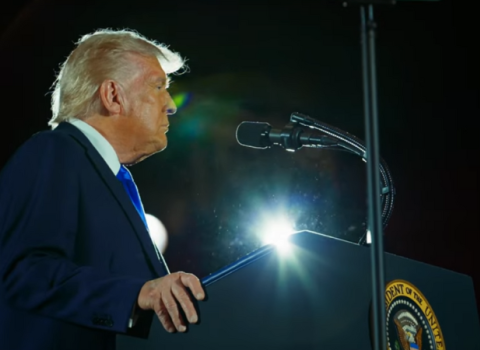
Image: David Boyk
Following India's landmark decision last January to amend the Drugs and Cosmetics Act, foreign drug companies can now conduct multi-centre global clinical trial in India. Until the amendment a non-Indian drug company could only conduct a clinical trial in order to market a drug in India, and then only if particular trial phase had previously been conducted outside India.
Now almost all the major pharmaceutical companies have made a beeline to the regulator, Ashwini Kumar, the Drug Controller General of India in New Delhi. Kumar is clearly happy with the amended act as well as the pharmaceutical industry's response to it. "Our vision is to become a preferred destination for global clinical trials by 2010," says Kumar. Over 100 international and 300 Indian trials are currently being conducted in India now, according to Kumar.
So far data collected in India have rarely been submitted to the US Food and Drug Administration (FDA) or EMEA (the European Medicines Agency) for new drug approval. But with the India announcing data confidentiality under its new patent regime - also inaugurated last year - more drug companies will use Indian data to get their drugs approved in the US or Europe.
The export of data has already begun. In 2005, the US FDA inspected two clinical research sites in India and data from those have been submitted to the FDA. "We expect such inspections to increase in near future," David A. Lepay, senior advisor for clinical science and director of good clinical practice programmes at the FDA, told Science|Business.
India clearly sees this as a big opportunity not only to earn money but also to improve its healthcare infrastructure across the country. "Clinical research is becoming the only way to improve public health reach as well as infrastructure. Any responsible nation must be very strong in clinical research," says M.K. Bhan, a paediatrician and secretary of the federal Department of Biotechnology in New Delhi.
Not just the money
Globally, the pharmaceutical industry is grappling with the increasing cost of clinical trials, which are now the major component in the cost of developing a new drug. The global clinical research business is expected to reach $26.5 billion by 2007 according to the US analysis company BCC Research.
India, much to the local industry's delight, is witnessing the highest compounded annual growth rate for contract research among Asian countries at over 25 per cent. According to the latest Frost & Sullivan estimate, the contract research market in India is growing faster than that of Japan, Australia and China. Japan has the largest share in Asia at $450 million and a compounded annual growth rate just over 15 per cent.
A May 2005 study by the Tufts Center for the Study of Drug Development, Boston, US, showed that active clinical trials in the US are declining whereas those outside the US have risen between 2001 and 2003. Reduced cost is undeniably the biggest attraction for the drug companies to come to India. But India also offers a host of other benefits, both short and long term.
India's billion plus population offers large patient pool that enables much faster recruitment. Most of the people who enrol for clinical research are poor people who have not been exposed to too many drugs ("treatment naïve" in the jargon) and hence offer a goldmine for researchers.
Moreover, India has one of the most genetically diverse populations worldwide. And in the wake of drug withdrawals like Vioxx, Bextra and Celebrex, pharmaceutical companies see the significance of testing new drugs on larger, diverse populations. One of the ways for the drug industry to go, according to analysts, is personalised medicine - a line of treatment that is targeted towards sub-populations rather than wider populations.
Multinational drug companies will give emphasis to drugs for responsive sub-population using the tools of pharmacogenomics. With its large and diverse populations, India offers a large gene pool for testing. "This is not only useful information for the company, but eventually to the patients as well," observes Govindrajan Padmanaban, a scientist at the Department of Biotechnology.
Tapping the opportunities
Despite cumbersome bureaucracy, India has moved swiftly in the last year to tap clinical research opportunities. The government has removed import duty on the supplies related to clinical trials. Export of trial-related biological specimens is allowed on a fast-track mode based on the trial protocol. The Drug Controller General of India's office, known for tortuous delays in granting approvals, has announced that all applications will be cleared within 12 weeks.
The industry on the other hand is trying to emulate the software services industry and is organising itself on the lines of Nasscom (India’s lead software body) under the patronage of Federation of Indian Chambers of Commerce and Industries. It is seeking single-window clearance for all decisions related to clinical trials.
But both the government and the industry will have to fight the "guinea pig" label which clinical research, especially in developing countries, is associated with. "There continues to be a bias against this industry - the guinea pig syndrome - in a sizeable section of society, particularly now when international multi-centric trials are being conducted here," admitted Ashwini Kumar. Probably to address this, the Drug Controller General of India and the Indian Council of Medical Research have said they will set up a registry of all clinical trials going on in the country so that people have access to all relevant information.
Since India does not have a long tradition of compliance with international norms on good clinical practice (GCP) for trials, there is a gaping chasm between the demand of skilled investigators and ethics committees and their supply. In order to address the various needs of this significant sector and the ramifications it could have on India, the Indian Prime Minister Manmohan Singh in his July 2005 US visit met senior officials of the US Department of Health and Human Services and expressed India's desire to set up an agency like the US FDA. In November Lepay visited India to initiate government and industry training programmes.
"GCP by itself will not work, government regulations are needed," Lepay said, adding that globalisation of clinical trials was attracting tremendous attention in the US. He admitted that sponsors and regulators from the US, EU and Japan had relatively little experience in India, but said that the industry was undergoing a lot of change and expanding geographically. "The lessons learned in implementing GCP (US, EU, Japan and others) can and should be used to advantage in extending GCP globally," he said.
Checks and balances
The healthcare industry is not without its share of brickbats - some of them justified. The biggest fear in India is that the regulatory authorities have not placed enough checks and balances to protect its ill-educated and gullible populace. There is no accreditation system for the ethics committees that operate in the country. Nor is there any system to train the ethics committee members on which the Drug Controller General of India puts the onus of overseeing a trial until its completion. "We are preparing ourselves to inspect the trial sites, sponsors, CROs [contract research organisations], ethics committees and everyone else who has access to data," said Kumar.
Indian trial patients and volunteers have no legal recourse in case the industry or the investigator causes them harm. Even though draft legislation has been presented in the Indian parliament, it has not yet become law. "Hopefully the bill will be passed in the winter session of the parliament," says Vasantha Muthuswamy, a senior director of the Indian Council of Medical Research in New Delhi.
But even with these regulations, the level of literacy is so low and poverty so high that most trial "subjects" give their consent even without understanding what they are getting into. "It is time some research was done to see how much of the lengthy consent forms are actually understood by the patients," suggests Prem Pais, a long-time clinical investigator and dean of St John's Medical College and Hospital in Bangalore.





 A unique international forum for public research organisations and companies to connect their external engagement with strategic interests around their R&D system.
A unique international forum for public research organisations and companies to connect their external engagement with strategic interests around their R&D system.